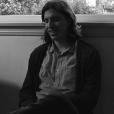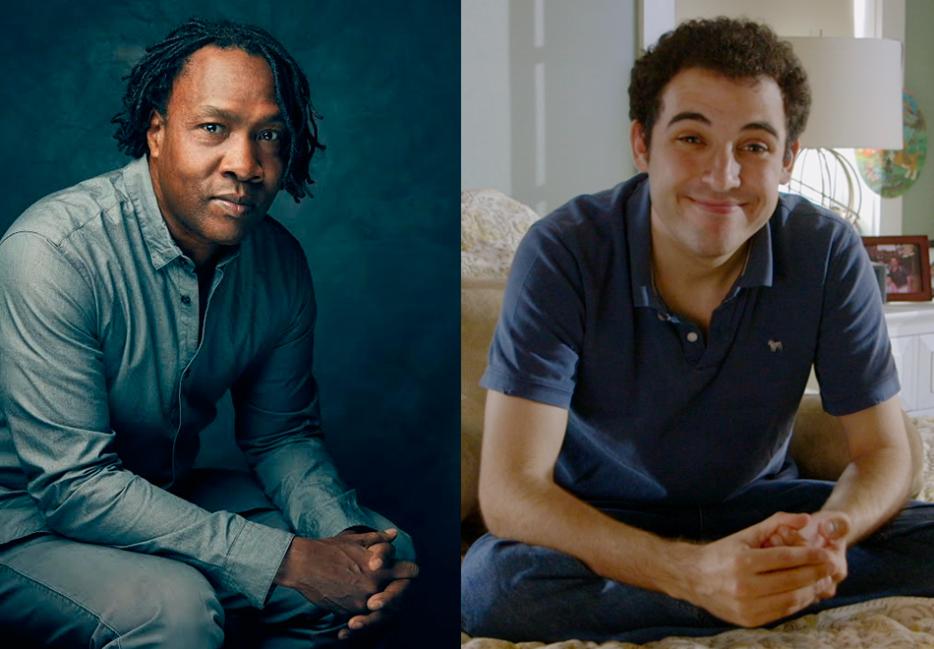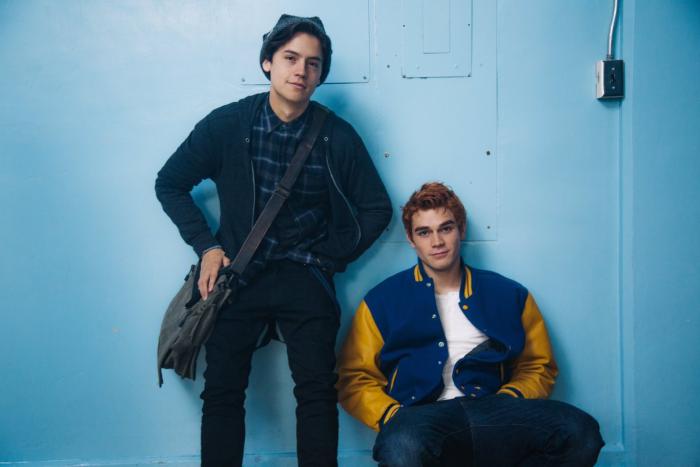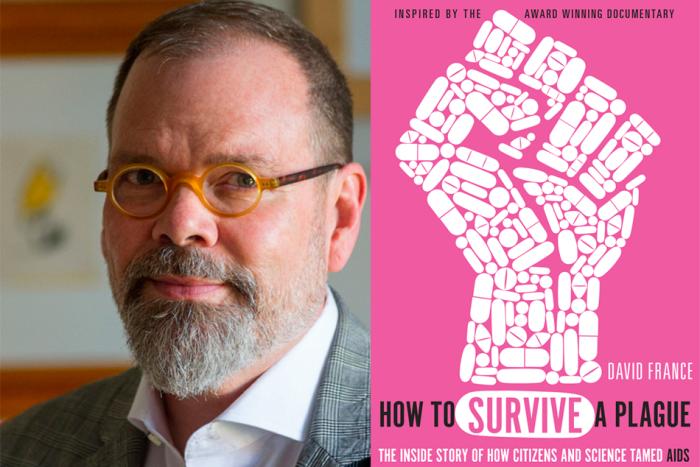Owen Suskind is sitting, legs crossed, in front of his incandescent television. He is five years old and, like many children his age, finds pleasure in the wondrous worlds of Disney animation. As Aladdin begins to play, excitement washes over Owen’s face. It’s bliss incarnate. But it’s also refuge for the pre-schooler, who—to combat his autism—learned how to communicate by absorbing the language of Genie, Jafar, and Iago.
What proceeds could’ve easily devolved into unbearable saccharine—a head-banging PSA about autistic children in need of support. Cue the Sarah McLachlan sap. Instead, documentarian Roger Ross Williams produces something powerful and potent. His latest documentary, Life, Animated presents cinema as a life raft.
In conversation, Williams discussed his singular career, removing ego from his documentaries and working hard to balance the playing field in Hollywood for men and women of color.
Sam Fragoso: In your new film, Life, Animated, how did you avoid the sentimentality that could easily be a part of a documentary about autism, while still making it a film that wins people over?
Roger Ross Williams: When you make these films, you bring all of your personal perspective to it. I really wanted to make a different type of film about someone who was differently abled, and I really wanted to tell the story from Owen’s perspective. The whole goal of the movie is to slowly take you into Owen’s world and reality, and change the way you think. You hopefully have this sort of out-of-body experience where you are totally immersed in Owen’s world and Owen’s reality, and you begin to understand who he is and who people with autism are.
If you have a bias against Disney, for example, that goes away because what you realize is that it’s not about Disney, it’s about something bigger than that. It’s about the power of story, and about how classic fables—which is really what these Disney films are—may connect us all and make us all human. People who are storytellers and writers, I think it has a powerful effect on them the same way it did on me, which is the reason I wanted to make the film.
As a documentarian, is it difficult to remove yourself from this equation? Is it challenging to remove your own ego?
It is challenging for a lot of filmmakers and directors, but I’ve been training for this. When I made my first film, Music by Prudence, that sort of prepared me for this film. That was about someone who was severely physically disabled, who can’t feed herself and doesn’t have use of her arms and legs, and how she overcame that through music and art. As I spent time in Zimbabwe in the worst of situations for kids living with disabilities in an orphanage, I was uncomfortable and awkward in the beginning. And I slowly, for months and months and months that I spent there, immersed myself in their world and I started to see the world through their eyes.
I think with Owen the same thing happened. In the beginning of the film, the audience is uncomfortable because Owen is pacing and talking to himself and they don’t know what he’s saying. It’s awkward. As they slowly are taken into his world and see what’s going on and see how rich and beautiful it is, by the end of the film, when he’s pacing and talking to himself, you know exactly what’s going on in his world. You know exactly what he’s saying. You are in there and that’s the experience that I had in making the film. I was uncomfortable in the beginning. I didn’t know how to connect or relate to Owen. Over the years that I made the film, I became more and more comfortable and the arc of how I wanted people to feel became more clear as I became immersed in his world.
Why do you think the adage “walk a mile in his shoes” is so difficult to live out?
I think it’s because people are in their own little bubble. They’re so worried about everything around them and how they are perceived that it’s very difficult to take yourself out of that. The beauty of Owen is he doesn’t have that sort of bubble around him, he doesn’t have that filter. He’s open and an open book. He expresses himself and experiences things and takes them in very differently. For some people it becomes uncomfortable because he’s like a raw nerve. So when he experiences the breakup he just says what we all think. “Am I gonna be alone forever? Why is the world filled with so much pain and tragedy?” He says all those things that we would all like to scream out and say, but that’s a beautiful thing. People who are sort of uptight may have a hard time watching that and experiencing that. I think because I was a journalist I have been overly trained in not bringing too much of my own shit to the filmmaking process. My goal with this was to sort of get into his head: I really want Owen to be the star of this film, his reality and his story. That was what was most important to me.
Is that type of self-removal important to you?
I always try to do that. Even with my last film, God Loves Uganda, people were like, “How can you sit there and live with these people saying these horrible things?” It’s about the LGBT, and Uganda, and the death penalty. And I was like, it’s because I can sort of remove myself. It’s about them: give them enough rope and let them hang themselves. It’s not about my anger or my feelings, it’s about really letting people be who they are.
Do you ever get stuck in your own bubble?
Of course, we all do! Absolutely. I certainly am in my own bubble now. We’re releasing the film and I think yesterday I did fifteen phone interviews and two radio shows and then a Q&A and screening for a few people. And I do that every day.
Does that feel right?
It feels right because I feel like I’m doing it for the greater good of humanity in that I really want people to see the film. I think people might think, “Oh, it’s a film about autism, why am I interested in that,” but then when they see it and they have this experience. I mean, we’ve won six or seven audience awards in festivals all across the country, and the reason we win audience awards and the reason that there’s thousands of people at these screenings cheering and crying is because it’s striking a chord about what it means to be human, what it is that connects you to other people. It was important for me to make the film not about autism, but a classic coming-of-age story, sort of Owen’s hero’s journey.
Does it feel like a double-edged sword, that while you’re making such important films you’re also advancing your own career?
Of course I’m advancing my own career, I’m fine with that. If I can get to tell [these stories], then that’s great. I used to be a journalist, and I always say I’m a recovering journalist, because the reason I left mainstream media, working for the New York Times or CNN or ABC, is because I wasn’t getting to tell the stories I wanted to tell the way I wanted to tell them. If I can have an opportunity to do that, especially as an African-American gay man, that’s really important.
I was just listening to an interview I did here on GPCC, the NPR station here in L.A., because I’m running for governor of the Academy. I was talking about how I had no role models, I had no mentors, and my story didn’t seem important to who I was, in my experience. I always want to tell stories about experiences of people who feel outside of the mainstream.
What does it mean for you to have been elected as the Documentary Governor of the Academy?
Now that I have been elected governor of the Documentary Branch of the Academy of Motion Picture Arts and Sciences, I finally have a place at the table. I will push AMPAS to continue their efforts to meet their deadline to "commit to doubling the number of women and diverse members of the Academy by 2020.” And, “The Academy is going to lead and not wait for the industry to catch up,” as President Cheryl Boone Isaac’s said in the AMPAS press release. For me that means enhancing educational and mentorship programs in diverse communities. I welcome the challenge and look forward to getting to work.
Has that experience changed since you became the first African-American director to win an Oscar in 2010?
I’m not sure. When I won the Oscar, no one offered me a job or called, Hollywood didn’t come calling, no agents called. I didn’t have an agent until a few weeks ago. Everyone else who won an Oscar or even got nominated was signed immediately. I had a conversation with Ava DuVernay for her podcast, and we were like, “We have to work ten times harder than everyone to even get recognized.” And I feel like I didn’t get recognized, even though it was historically significant. And it shouldn’t have been, because I shouldn’t have been the first African-American director to win an Oscar when there are so many great directors.
Do you feel like you need an agent to have your voice heard? Isn’t having people respond to your stories enough?
Yeah, but you have to have someone to distribute, to fund. That wasn’t happening. God Loves Uganda was a struggle to get made and was not funded by any industry but was funded by the Ford foundation and grants which have a mandate to tell those types of stories.
Did it not feel like a sustainable career, even after the Oscar?
I didn’t know if I would have a sustainable career after winning the Oscar. How many people who have won the documentary Oscar, and especially in the short documentary Oscar, do you know? How many of them can you name? Most of them aren’t working.
Do you remember Louis C.K.’s joke about that this past year?
Yes, it was great! That was a great moment. I think for me, that was the best moment at this year’s Oscars because it was so true.
Do you see a time where all of this becomes less of a struggle, especially for people of color and women filmmakers?
Not anytime soon. I think that it’s a long haul. I think that things are changing for the better with the efforts that the Academy is making, but I also think the communities, especially the Black community, are finding their own means of distribution. They’re sort of like, “We’re not going to wait around for Hollywood, we’re going to show you. We’re going to create a marketplace that is viable and that makes money and that people want to go see. Then they’ll hear our story and then Hollywood will come knocking.”
That’s really great, and there’s also an avenue of working from within the system, and really pushing initiatives. They have a huge educational program and I want to really push that part of it and go to underserved communities and inspire people to get into the industry. This year, in documentary, [the Academy] just admitted our first Black women. There was never a Black woman in the documentary branch of the Academy. Not one. This year, in this class, were the first Black women, three of them. Dawn Porter, Shola Lynch and Laurens Grant are the first three Black women admitted into the documentary branch of the Academy, so we have a long way. Little girls, or boys, or anyone in the Black community don’t say, “Oh, I want to be a documentary filmmaker.” Or a filmmaker, even! So it’s about encouraging them, supporting programs, and starting from the ground and working your way up. So we’ll have qualified filmmakers who can then change things.
Was there a point in your life, after leaving journalism, when the lack of recognition despite your hard work made you consider quitting?
I’m sure there were many times in making Music by Prudence that I wanted to give up, but something was driving me and I didn’t give up. I don’t know what it was. It wasn’t because I had role models or examples. It was something else.
What do you think it was?
I think it was a desire to prove myself and my self-worth. I had a lot to prove to myself, but also to the community I grew up in. I grew up in the Black church, in an industrial northeastern town, as a secretly gay boy who was not accepted and was sort of made fun of. So it’s all that rejection, and then you kept this drive. Like, “I’m going to show everyone!”
When did you first feel comfortable? With your sexuality, your self, and the rejection you’ve faced?
It wasn’t until I left, when I went to NYU. It was really in college that I felt free. New York can do that for you.
What was it like?
It’s iconic, New York in the ‘80s. It was a thriving, artistic scene of nightclubs and great artists. It was exciting, and you could be yourself there. You could express yourself in whatever way. When you’re in college, and you’re trying to figure out who you are and find yourself, it’s a great place to do it because you have complete freedom in every way, and you have the city as your complete playground. Which can be overwhelming, but you sort of find your tribe and community there.
When you went home for the first time after starting college, did your family see the difference?
I grew up with a single mother who was a maid who cleaned the toilets of a fraternity house at a college in my town. I’ve always thought bigger than where I came from, so I could never relate to it anyway. I was always dreaming of Paris and stuff, I don’t know where that came from. So when I go back I’m always just more alienated from the community where I came from. There was a great moment two years ago where the college where my mother worked, Lafayette College in Pennsylvania, gave me an honorary doctorate degree. I went back there to receive my honorary doctorate degree with my now-elderly mother, and I stood there and I said, “My mother was a maid. She cleaned the toilets here in the frat house, and now her son is receiving an honorary doctorate degree.” People were in tears. I was in tears! It was such a powerful moment.
That’s something you’d see in a movie.
I’m doing this film where I go back to my community. In my next film with CNN films and BBC, European Broadcasters, I’m going back there to make a film about going home. It’s really about mass incarceration and about all my friends from high school who I’ve never seen since high school who are all in and out of prison.
It certainly seems like people see and hear you now.
Yes, finally. Yes, and I’m not going to waste the opportunity or shy away from difficult stories, or from telling stories about people who are not seen. People like Owen, who people pass by, and they look the other way. They don’t see and they don’t know, and they don’t want to know. Then they discover people like Owen or people like me. You know, I make the films because I connect with that subject, with that person. You have to have that sort of passion to make documentaries because it takes so much, so many years and so much blood, sweat and tears that it had better be personal. I think that this film is also personal in a different way. I love that it’s told through someone who’s not neurotypical, and who comes from a world that’s very different from my own. That’s a world that you would say is of white upper-middle class privilege, but is also outside of the mainstream.






